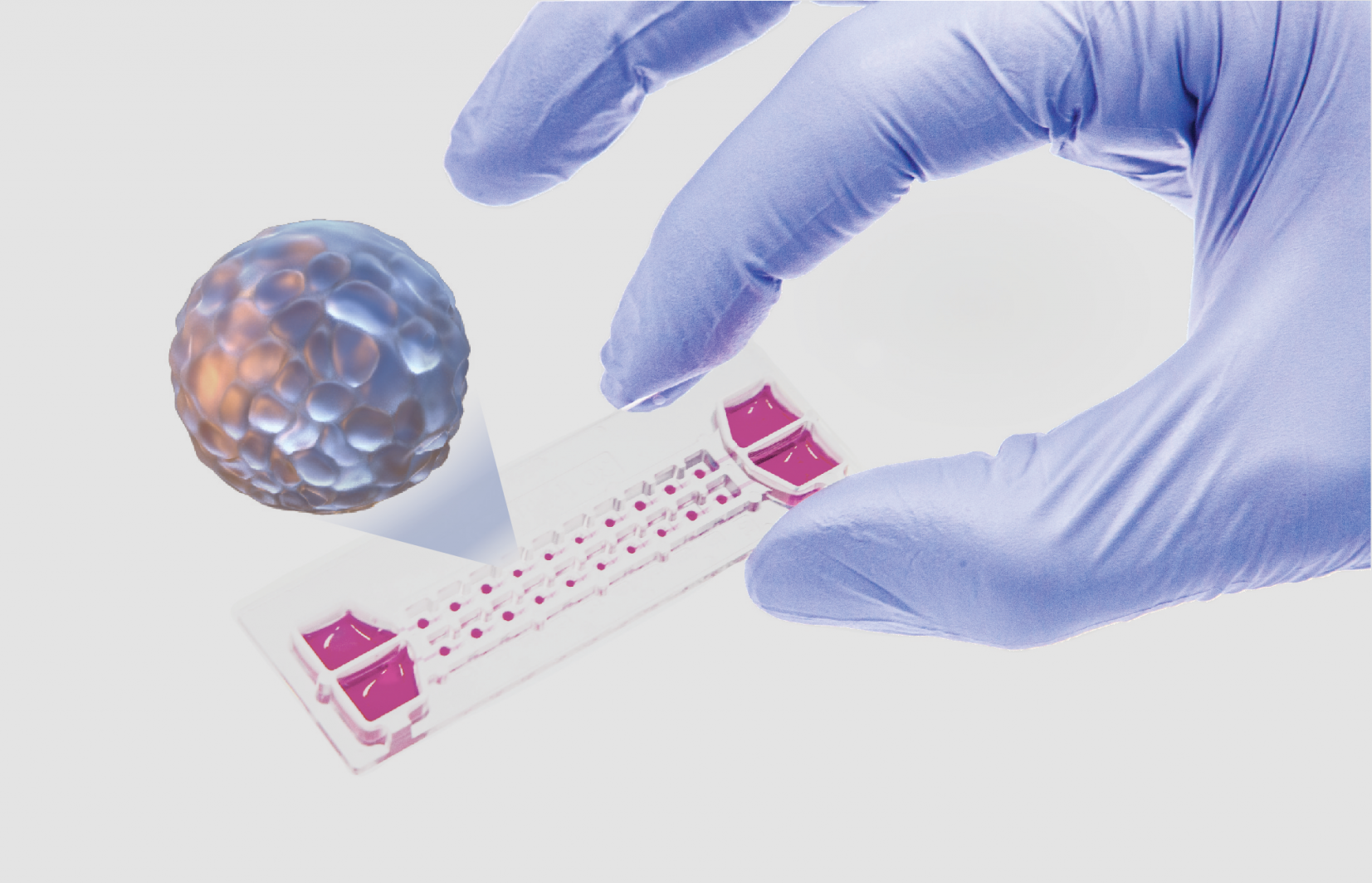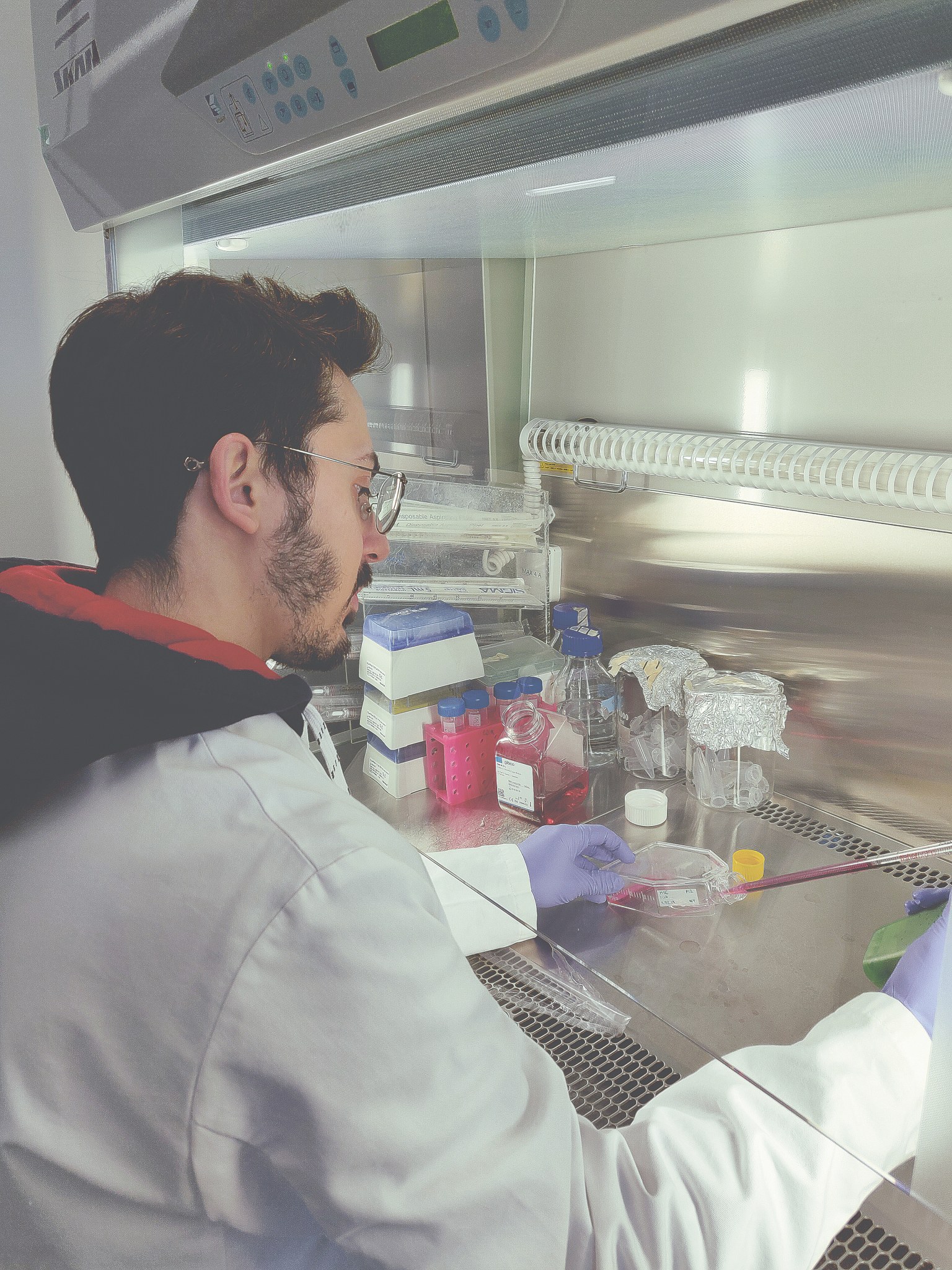- Leave a review
- Claim listing
- Bookmark
- Share
- Report
- prev
- next
- Tuesday, May 7, 2019 @ 12:20 am
The Zurich-based company InSphero has successfully completed a joint project with the University of Applied Sciences and Arts Northwestern Switzerland, School of Life Sciences (School of Life Sciences FHNW) to develop a 3D organ-on-a-chip assay that can predict the metabolic stability of pharmaceutical drugs. The year-long project was part-funded by Innosuisse, the Swiss Innovation Agency and the study culminated in partnerships being forged with major pharmaceutical companies.

Annalise Eggimann
CEO Innosuisse
A true success story
Not all innovative schemes and ideas, however inspired, end up as a success story. Finding the path to success requires a multitude of factors to come together and sourcing funding or potential partners forms an integral part of this process. The Zurich-based company InSphero, a specialist in 3D tissuebased assay solutions, set off on its journey in 2017. Its project was to reproduce a system that closely mirrored the workings of the liver in order to observe how the metabolism breaks down drugs. And only one year later, the work was done and the results were on the table.
Nothing happened by chance. Rather, it was down to the determination of a team of highly motivated and resourceful entrepreneurs with a welcome boost from Innosuisse, the Swiss Innovation Agency. Of particular importance was the assistance (see box) that Innosuisse provides in facilitating joint innovation projects between companies and research institutions. Working with Innosuisse was ideal for InSphero.
“We had to conduct a lot of experiments to prove that our system was viable, which takes considerable work and resources. This required external support. We thought that Innosuisse would be the perfect partner to get this project completed, from the initial model to the final product.” Dr Olivier Frey, Head of Technologies and Platforms, InSphero
Having already benefited on other projects from the expertise of School of Life Sciences FHNW – and more specifically from the knowledge of Dr Laura Suter-Dick, Professor of Molecular Toxicology, and her research team – the SME applied to Innosuisse for funding to carry out the study.

It was not just the innovative approach, but also the potential for generating value for the economy and society, that were key to the project funding application being accepted. “We have to be able to create new drugs to treat any new disease that emerges,” says Dr Suter-Dick. “And studies need to be done to understand how long a substance remains stable in the human body and therefore how many times it can be given to a patient. The system proposed by InSphero makes it possible to reproduce what goes on in the body using an in vitro technology – in other words, without having to test anything on animals, for example.”
On the back of a positive evaluation, the project quickly took shape. “The decision-making process doesn’t take long, which is a benefit when getting a study off the ground,” says an enthusiastic Dr Frey.
Dr Suter-Dick agrees: “I am a firm believer in Innosuisse’s funding model. The opportunities it offers are a great help to SME. I don’t think you will find anything like this anywhere else – there won’t be many other countries offering this kind of support.”
The project was brought to a successful conclusion in October 2018, one year after its launch. “The initial studies were quite tech-heavy and took us a bit longer than expected. But what matters in the end is that results have been achieved and that the data collected can be used,” says Dr Frey. “We are currently working on obtaining even more validations by conducting even more experiments. With the data we have in our hands, we have already been able to approach clients and some major pharmaceutical companies are testing our product. Once the necessary tests have been done, the idea is to standardise it.”
The InSphero 3D organ-on-a-chip assay is a great example of successful project execution. It demonstrates how productive working together can be and how in so doing, the potential for forging future partnerships is increased. “We’ve maintained some good contacts at InSphero and are exploring the idea of collaborating on a new project and asking Innosuisse for its support once again,” Dr Suter-Dick concurs.
“Without the financial support from Innosuisse, we wouldn’t have been able to finish this project. I don’t believe that a small company like InSphero could have funded the kind of scientific research that we did. It’s not always easy for small outfits like ours to do exploratory research, and I think Innosuisse is the perfect way to go about this.” Dr Olivier Frey, Head of Technologies and Platforms, InSphero

The provision of funding for innovation projects is Innosuisse’s most important support instrument. Partners from industry and research join forces to implement clearly defined innovation projects. Innosuisse covers up to half the project costs, paying the salaries of the researchers involved in the project with the companies funding the other half. Throughout Switzerland, Innosuisse Innovation Mentors offer their services for free to enable companies to find the right research partners and work with them to write their funding application. Meanwhile, National Themed Networks (NTNs) facilitate meetings between researchers and entrepreneurs from a specific field of innovation. Start-ups can also enjoy professional support in the form of coaching. Innosuisse provides companies with vouchers allowing them to select their own partners from a pool of accredited coaches as well as offering a range of courses and training modules for anyone looking to start up their own company in this way. www.innosuisse.ch
